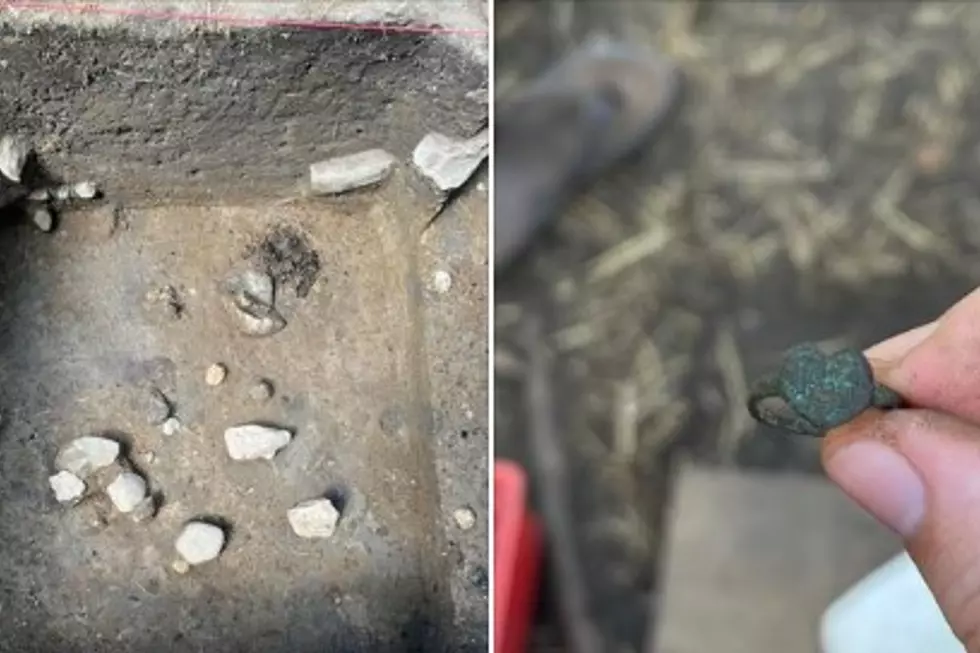
Ring From the 1700s Unearthed at French Fort in Michigan
An archaeology student made a rare discovery while digging on a French fort in Southwest Michigan: A heart-shaped ring believed to be from the 1700s.
Before Michigan Was Michigan
The "Jesuit Ring" is believed to be a trade trinket that dates back to when the Southwest Michigan region was known as 'New France,' dozens of years before Michigan officially was admitted to the United States in 1837.
According to the Lexington Herald Leader, the fort where the ring was found is about 95 miles east of Chicago. Experts say France had a strong presence in the Great Lakes region before the land was abandoned in 1781.
Erika Hartley is the field director and curatorial fellow at the Fort St. Joseph Archaeological Project. She says the ring likely dates back to the 1700s or maybe even the late 1600s.
“Fort St. Joseph was occupied from the 1680s to the 1780s so the ring could have been lost at any point during that time frame,” Hartley says. “It was most likely manufactured prior to its arrival at the fort, but at this point it is hard to narrow down a specific date.”
Archaeology Student Makes the Find
Kylie Krueger is the student from Western Michigan University who made the discovery. She made the discovery while using water to separate artifacts from soil during her class' last wee of excavation.
“These types of rings are typically made of copper alloy and the bezels can be found in numerous shapes such as round, oval, octagonal, etc.,” Krueger says.
“Other popular rings, included glass insets made to look like precious stones instead of the bezel. The ring I recovered is made out of copper alloy and has a heart-shaped bezel on the band.”
She goes on to say that Jesuit rings were used as popular trade items in the early 18th century.
Historic Mott Park Carriage House Airbnb
These Michigan Restaurants Have All Sadly Closed Since Appearing on National TV
This House in Saginaw Looks Just Like the One in 'Home Alone'
More From Cars 108









